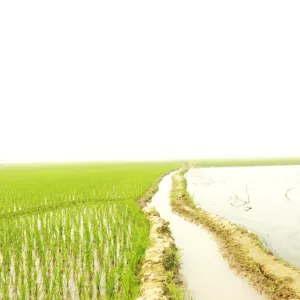World Wetland Day: IRRI’s role in preserving Bangladesh’s Haor wetland ecosystem
by Rehana Noor In the Haor wetlands of Bangladesh, rice is a key source of food and livelihood for millions of people. Working with partners, IRRI is helping advance rice cultivation in the region while protecting these threatened ecosystems through sustainable farming innovations. The haor wetland region of Bangladesh accounts for 25% of Bangladesh’s boro rice production and 15% of

World Wetland Day: IRRI’s role in preserving Bangladesh’s Haor wetland ecosystem
by Rehana Noor
In the Haor wetlands of Bangladesh, rice is a key source of food and livelihood for millions of people. Working with partners, IRRI is helping advance rice cultivation in the region while protecting these threatened ecosystems through sustainable farming innovations.
The haor wetland region of Bangladesh accounts for 25% of Bangladesh’s boro rice production and 15% of the country’s annual rice output (BBS, 2023), with single boro rice cultivated in 80% of the haor basin. However, the rice value chain in the haor region faces several challenges, including limited access to improved varieties and quality seeds and issues related to irrigation, mechanization, storage, labor shortages, and market access. These obstacles often result in delays in harvesting and significant losses for farmers.
Wetlands, permanently or seasonally saturated or flooded with water, provide vital ecosystem services, including wetland fisheries, agriculture, irrigation, and protection against floods. Most importantly, wetlands serve as a source of fresh water. Millions of people depend on wetlands, making them an essential economic lifeline.
The Global Assessment Report on Biodiversity and Ecosystem Services, produced by the Intergovernmental Science-Policy Platform on Biodiversity and Ecosystem Services (IPBES), identifies wetlands as the most threatened ecosystem, affecting 40% of the world’s plant and animal species that live or breed in these areas. Unfortunately, wetlands are disappearing at an alarming rate due to human activities and climate change, vanishing three times faster than natural forests. According to the World Heritage and Ramsar Conventions, 64% of the world’s wetlands have been lost since the early 20th century.d cultural benefits of this ecosystem for generations to come.

